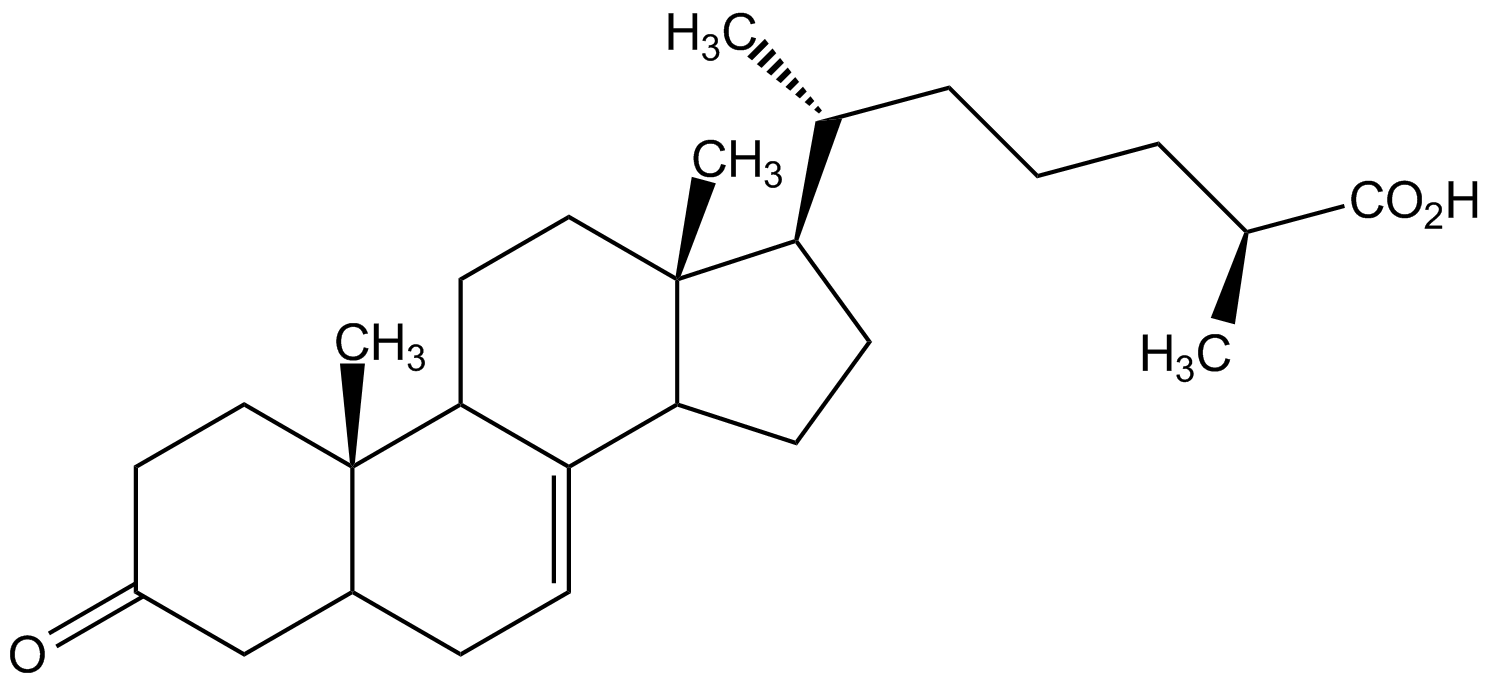
Chemical Structure
(25S)-delta7-Dafachronic acid [UPF-1404]

AG-CN2-0014
Overview
- SupplierAdipoGen Life Sciences
- Product Name(25S)-Delta7-Dafachronic acid [949004-12-0]
- Delivery Days Customer10
- CAS Number949004-12-0
- CertificationResearch Use Only
- Estimated Purity>95%
- Molecular FormulaC27H42O3
- Molecular Weight414.6
- Scientific DescriptionChemical. CAS: 949004-12-0. Formula: C27H42O3. MW: 414.6. Ligand of DAF-12, an orphan nuclear receptor, that regulates dauer diapause, reproductive development, fat metabolism, and life span (life cycle) in parasitic nematodes. Sterol-derived hormone. Blocks formation of infective larvae in several parasitic nematodes. Inhibits the dauer-promoting activity of DAF-12. Supports the reproductive development. - Ligand of DAF-12, an orphan nuclear receptor, that regulates dauer diapause, reproductive development, fat metabolism, and life span (life cycle) in parasitic nematodes [1, 2, 3]. Sterol-derived hormone. Blocks formation of infective larvae in several parasitic nematodes [4, 5]. Inhibits the dauer-promoting activity of DAF-12 [4, 5]. Supports the reproductive development [4, 5].
- SMILESC[C@H](CCC[C@H](C)C(O)=O)[C@H]1CCC2C3=CCC4CC(=O)CC[C@]4(C)C3CC[C@]12C
- Storage Instruction-20°C,2°C to 8°C
- UNSPSC12352200
References
- Identification of Ligands for DAF-12 that Govern Dauer Formation and Reproduction in C. elegans: D.L. Motola, et al.; Cell 124, 1209 (2006)
- A Potential Biochemical Mechanism Underlying the Influence of Sterol Deprivation Stress on Caenorhabditis elegans: M.C. Cheong, et al.; JBC 286, 7248 (2011)
- Functional divergence of dafachronic acid pathways in the control of C. elegans development and lifespan: K.J. Dumas, et al.; Dev. Biol. 340, 605 (2010)
- A Conserved Endocrine Mechanism Controls the Formation of Dauer and Infective Larvae in Nematodes: A. Ogawa, et al.; Curr. Biol. 19, 67 (2009)
- Identification of the nuclear receptor DAF-12 as a therapeutic target in parasitic nematodes: Z. Wang, et al.; PNAS 106, 9138 (2009)
- Indicted: Worms Caught using Steroids: R.B. Beckstead & C.S. Thummel; Cell 124, 1137 (2006) Review
